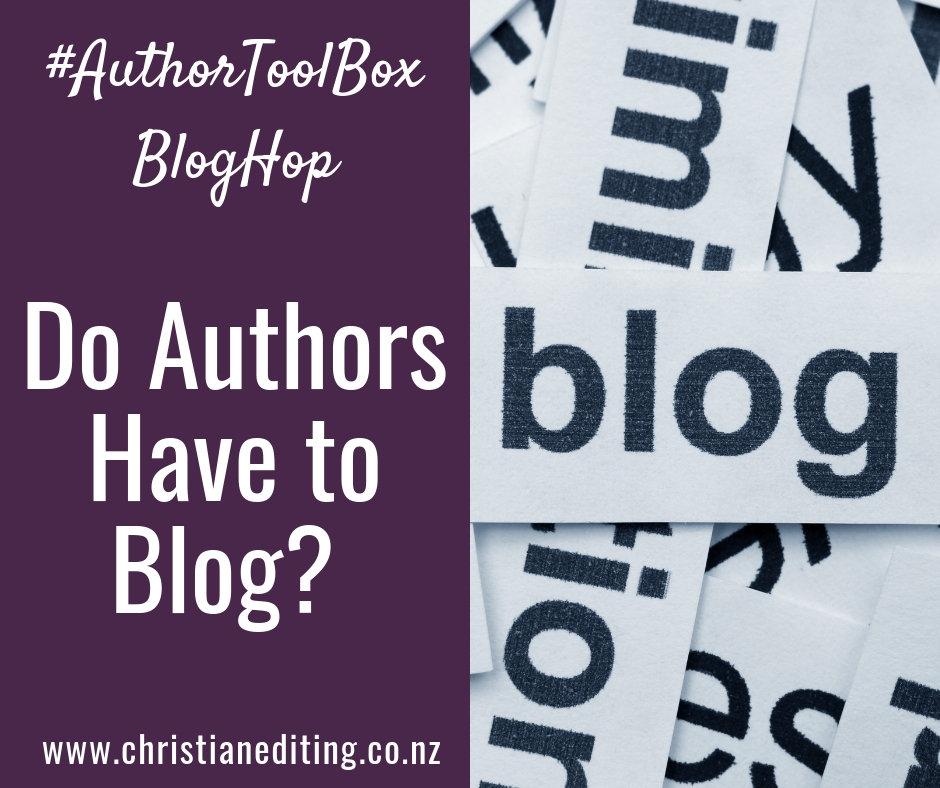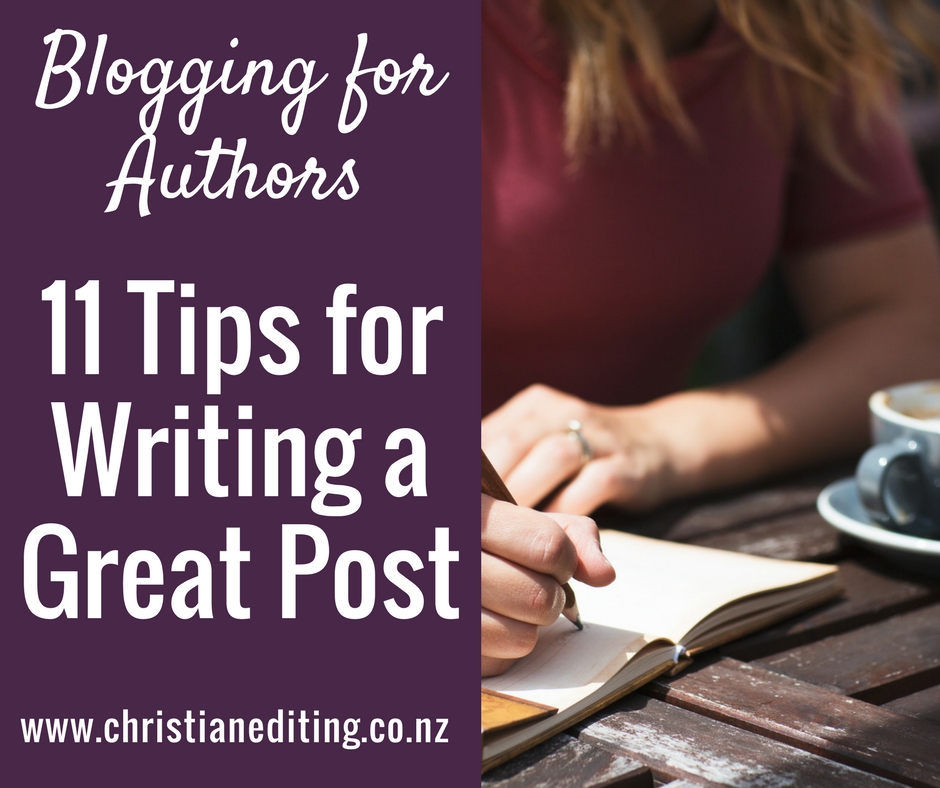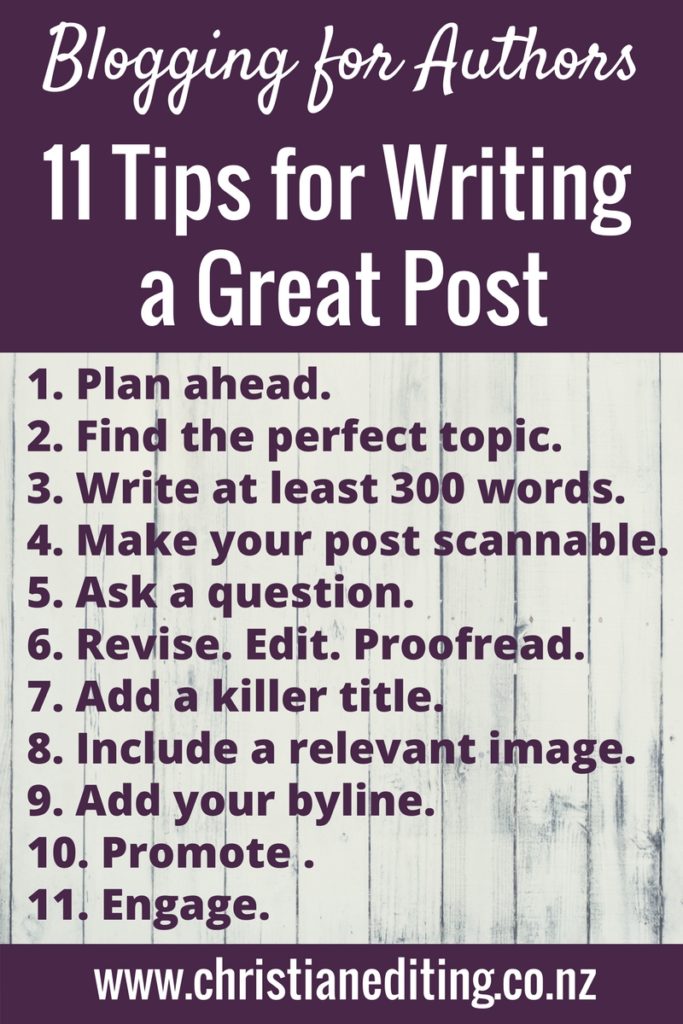Writers are an odd bunch. I’ve come across many writers who are more than comfortable with the idea of writing a 90,000-word novel, but have palpitations at the thought of writing and publishing a 500-word blog post.
These authors often ask the same question:
Do Authors Have to Blog?
My answer? Maybe. But maybe not.
If you’re a non-fiction author, then you do need to blog. It establishes your expertise in your specialist area, which will build credibility.
But you might not need to blog if you’re a fiction author. Many established authors don’t have a blog on their website. Others do, but blog only a few times a year (usually to promote a new release). Some blog on group blogs.
Do fiction authors have to blog? And what should they blog about? #Blogging #AuthorToolBoxBlogHop Share on XFiction authors may still need to blog.
If you’re aiming for a publishing contract with a major traditional publisher, then you almost certainly need to have an author blog and post regularly. Social media expert Edie Melson points out that regular blogging shows industry professionals you can write to a deadline and produce quality work. Melson does point out that blogging isn’t a way to sell books, but does provide a way of connecting with readers.
What if you’re aiming to self-publish?
Then it depends. Self-published authors need a website and an email list, but blogging? It’s not the most important part of a website—that would be your About page, and your Books page, because those are the pages readers are most likely to be looking for.
Do you enjoy blogging?
No? Then don’t start a blog. You want your blog to show readers an interesting person they want to know better. That’s not going to come through if you think blogging is a chore on a par with cleaning the toilet (or whatever household task you loathe most).
Can you commit to regular blogging? Will you?
Will you commit to a regular blogging schedule, including writing, editing and publishing a new blog post at least once per week for at least the next six months? No? Then don’t start a blog.
Don’t I have to blog to sell books?
No—even a strong blog might not help you sell books. Think of Mike Duran. I often share his posts because they are thought-provoking and relevant and he’s not afraid to ask the hard questions about Christianity and literature. But he writes Christian horror, and while I think his blog is great, I’m not interested in his fiction (sorry, Mike).
Anyway, no one is going to be interested in your blog if it’s a constant infomercial (let your Home and Books pages do the selling).
Okay. I’m going to blog.
If you enjoy blogging and can commit to a regular schedule, then maybe blogging is for you. Now your choice is between blogging on your website, or blogging as part of a group blog. Here are some I read regularly:
- American Christian Fiction Writers
- Australasian Christian Writers
- Inkwell Inspirations
- Inspy Romance
- International Christian Fiction Writers
- Seekerville
- Suspense Sisters
- The Kill Zone
- Writers in the Storm
If you blog on your own website:
- Be regular. Blog at least once a week, at the same time and on the same day each week. Announce this on your About page. Don’t overcommit yourself: if one good post each week is all you can manage, then blog once a week.
- Be intentional. Choose a topic or theme, and stick to it. If you don’t know what your theme might be, Jeff Goins has a 12-part free email course that might help you.
- Don’t put blogging ahead of writing your book. If blogging is taking over your writing time, you might need to reconsider how regularly you blog.
If you post on a group blog:
- Get your post up early. The earlier, the better. It saves the blog organiser the last-minute stress of wondering whether they need to find a filler post if you miss your slot.
- Ensure your posts fit the blog. Some group blogs have different themes for different days. I find a set theme makes it easier to write a post. Ensure your posts are consistent in length and style with those of the other contributors. This doesn’t mean letting go of your unique author voice, but it does mean making sure you’re not posting deep theological treatises when everyone else is posting about their cute pets (or vice versa).
- Put blogging ahead ahead of writing your book. You’ve made a commitment. Keep it. If you need to step back from contributing, contact the blog organiser and work out a mutually agreeable schedule. Don’t leave your blogmates in the lurch.
What do you blog about?
This is the more difficult question.
If you write non-fiction, blog about subjects related to your book (or even blog your book).
It’s not so cut and dried if you write fiction, especially if you’re not yet published. You want to your blog to appeal to your target reader—it’s a place for your potential audience to get to know you better, so write to appeal to that audience.
Do Authors Have to Blog? Tips for fiction and non-fiction authors #Blogging #AuthorToolBoxBlogHop Share on XWhat subjects are your readers interested in?
Rachel Thompson and other blogging gurus suggest picking four or five topics and blogging about each once a month. Topics should be:
- Something you’re interested in, so you can bear to write about them each month.
- Something your target reader might be interested in. There is no point in building an audience of manhwa (Korean manga) fans if you’re writing inspirational women’s fiction.
Your blog needs to serve your reader, not you. What questions are they asking?
This doesn’t mean you can’t post about your writing—you can, but in a way that’s relevant for your target reader. For example, you could post:
- Short stories (so they know your writing style).
- Reviews of books in the same genre (because you want your blog to attract readers, right?).
- Movie reviews in your genre (because readers are fans of story, and movies often have great stories).
Once you’re published, you can add book-related content, such as:
- Character information, maps or related plot information.
- Questions for book clubs.
- Outtakes or deleted scenes (maybe).
The Novel Marketing Podcast has a useful episode on what novelists can blog about.
One last tip . . .
If you do choose to blog, ensure your blog integrated into your website (so your blog is a page on your website, not a completely separate site). Your blog is where you’ll start connecting with readers, through regular blog posts, so don’t confuse potential reader by having two sites.




